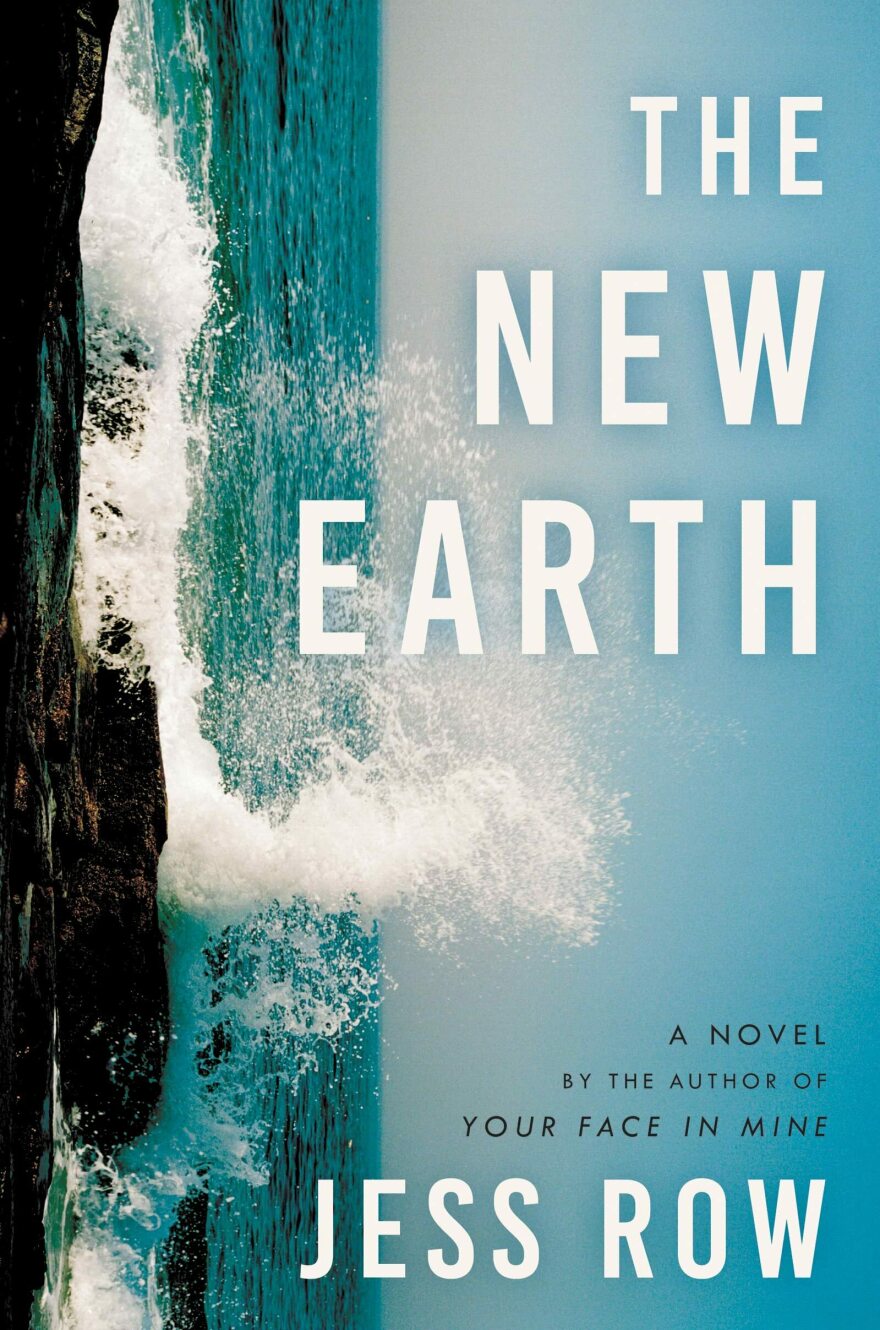Jess Row's new novel begins with a long, unsent email that's also a poem. It was written by Bering Wilcox to her brother, Patrick, not long before she was killed in the West Bank:
"...We Wilcoxes have never known
what would have sufficed. We wanted too much
and got nothing. I declare, game over. For the
time being. For this lifetime. This marriage of
five unhappy minds... "
Those five unhappy minds are the focus of The New Earth, Row's novel about an American family that has imploded, one that's broken, possibly irretrievably. It's a stunning book, a high-wire balancing act that tries to do a lot — and succeeds.
Early in the novel, the patriarch of the family, Sandy, plans to kill himself by jumping off the balcony of his New York apartment. He reconsiders, but ends up making another rash decision, abandoning his job as a lawyer and moving to Vermont, where he and his wife, Naomi, converted a house into a Zen Buddhist temple 40 years before.
Naomi is living in Woods Hole, Massachusetts; a geophysicist, she's on extended research leave from Columbia University. She's made her peace, kind of, with her separation from her husband, and now lives with her new partner, Tilda, who works at an oceanographic institution.
Both Sandy and Naomi, as well as their two surviving children, Patrick and Winter, are haunted by the past. When the children were young adults, Naomi finally revealed to them that her biological father was Black; the kids had been raised white and Jewish. "That's what made the lie so painful, honestly, it was that she robbed us of this aspect of who we were, because she was ashamed of it, and then that transferred the shame onto us," Winter explains to her fiancé, Zeno, a construction worker from Mexico.
Two years after that, Bering, the youngest of the clan and a peace activist, is killed by an Israeli sniper in the West Bank. Following her slaying, Patrick, who had a close relationship with his Bering — although a deeply troubling one — becomes a monk in Nepal, and doesn't speak to his family for three years.
The frame of the story in The New Earth is Winter's attempts to gather all of the living Wilcoxes to celebrate her wedding to Zeno, who has overstayed his visa and is in danger of being deported. (The novel mostly takes place in 2018, when President Donald Trump was scapegoating immigrants to anyone who would listen.) This proves difficult: Sandy and Naomi have reached a possible point of no return in their estrangement, and Patrick is typically cagey: as Winter says, he's "a person of obscure motives, maybe even to himself. Frantically needing to get in touch, then not calling for weeks, months."
There are many moving parts in The New Earth, and it's to Row's immense credit that it's not difficult to keep up with him. He does, helpfully, provide a timeline at the end of the novel, which switches from the past to the present fitfully. There are digressions in the book that deal with climate change, philosophy, race, and the Israel-Palestine conflict. And there is an undercurrent of meta-narrative present in the text: "Because the novel holds us all in place. He, who is speaking; I, writing; you, reading. The novel does our thinking for us. At the beginning it holds us around the legs."
In the hands of a less skilled writer, this could be a recipe for disaster. But Row weaves all the threads together masterfully; sections flow into one another in a way that's seamless. The switches in perspective and prose style are never jarring except when they need to be, and Row's use of language is surprising, at times, and unfailingly beautiful: "America is dead," he writes. "That isn't the right way to say it. The United States of America is dead. If I say it's dead to me, it is dead. If I say, mother country, I have no other, you are dead. The way the sunlight glows in the leaves of the red maple of the lawn: dead. The blue hill over the blue waters of the bay: dead. What thou loves remains: dead."
Although it takes place five years ago, The New Earth is very much a novel of our times. Early in the book, Sandy talks about "congestion": Congestion of emotions. A calcification of feelings. Too much feeling over too much time." This resonates in a country that's been put on its heels by COVID, political unrest, and bigotry — America keeps sustaining wound after wound, with never enough time to heal from the previous ones. The pain of the Wilcox family, and its dissolution, echoes the country's current suffering.
The New Earth isn't an easy book to write about — it's elusive by design. What is this novel, that talks to and about itself, that asks unanswerable questions? The closest answer might be: It's a modern epic that takes an unsparing look at family and national dynamics that nobody really wants to confront. It's ambitious and magnificent, the rare swing for the fences that actually connects.
Copyright 2023 NPR. To see more, visit https://www.npr.org.

